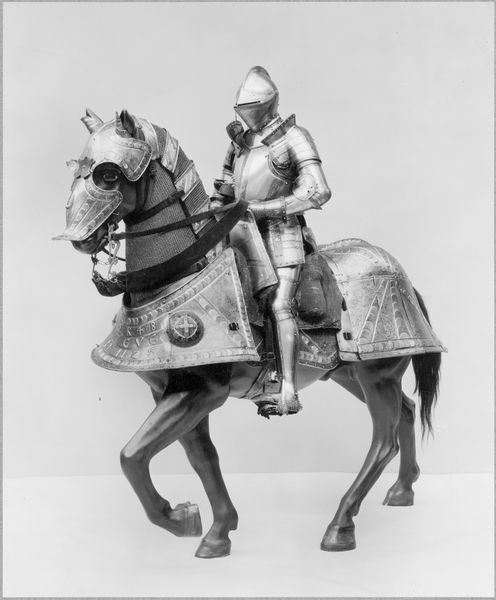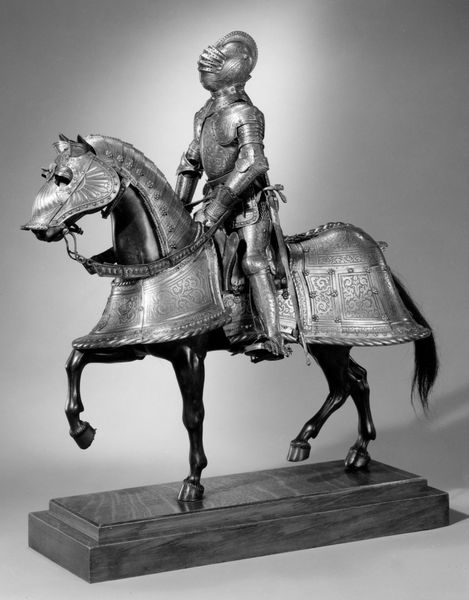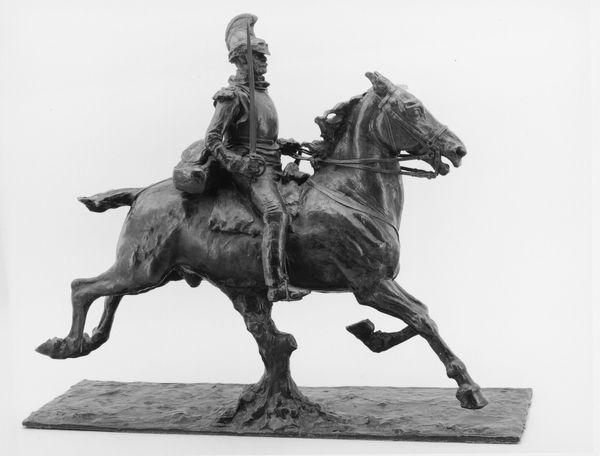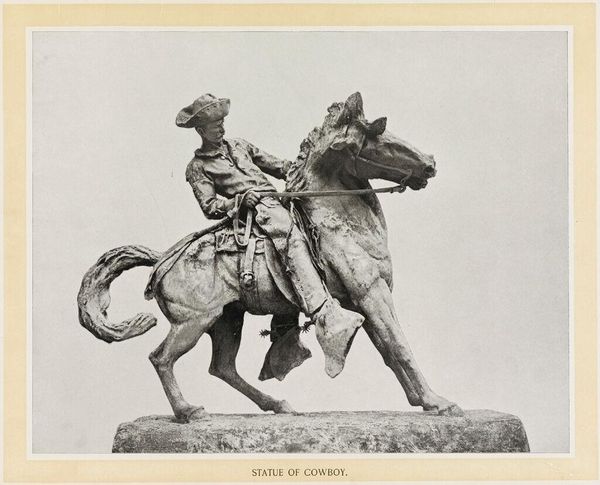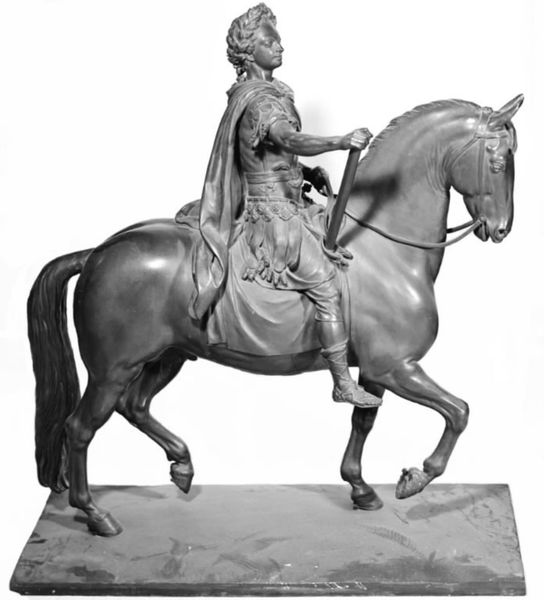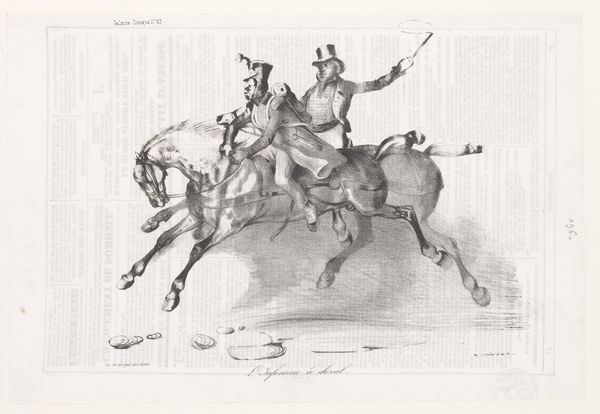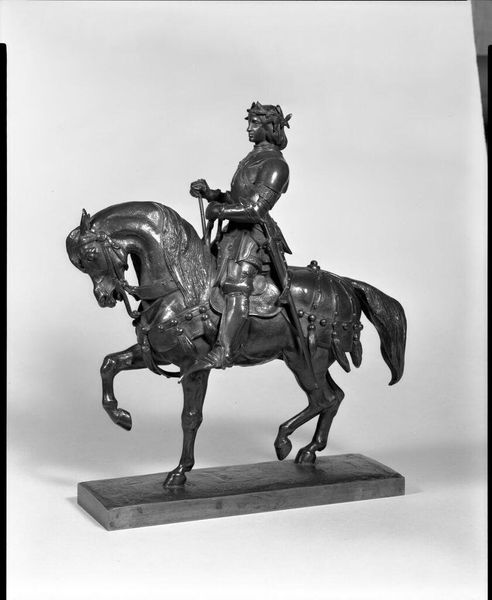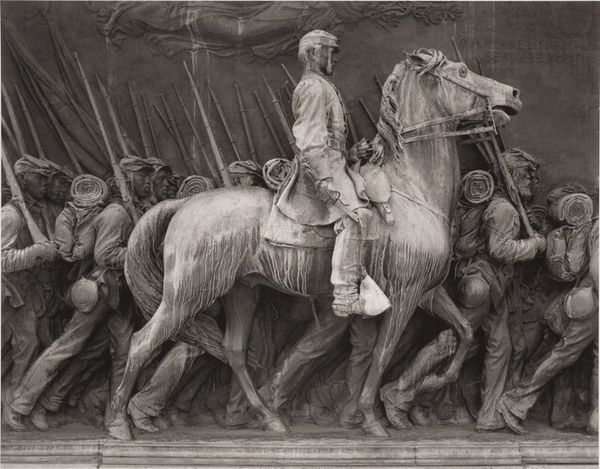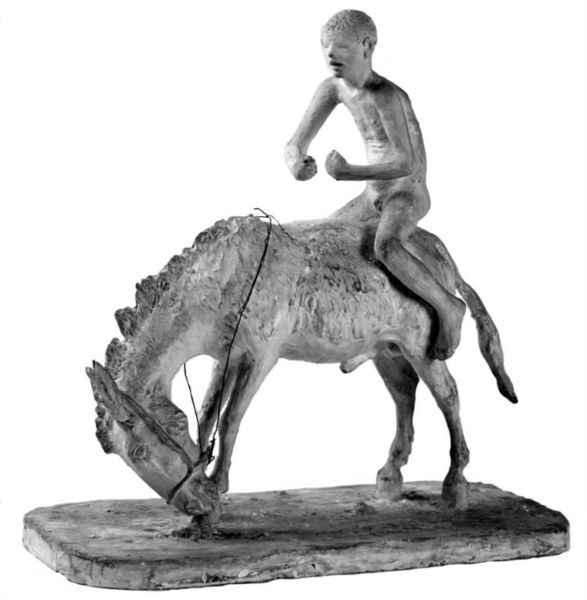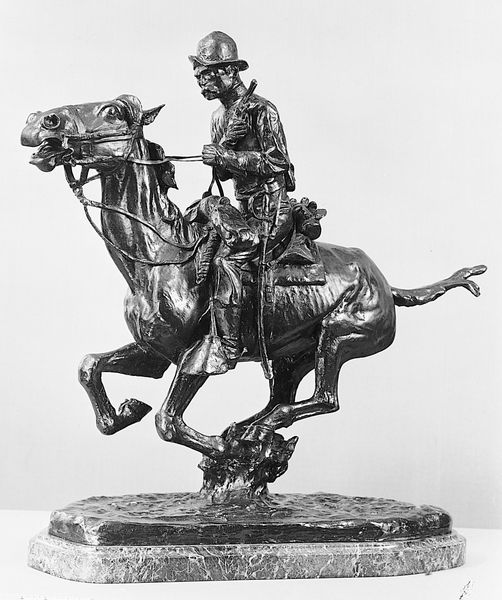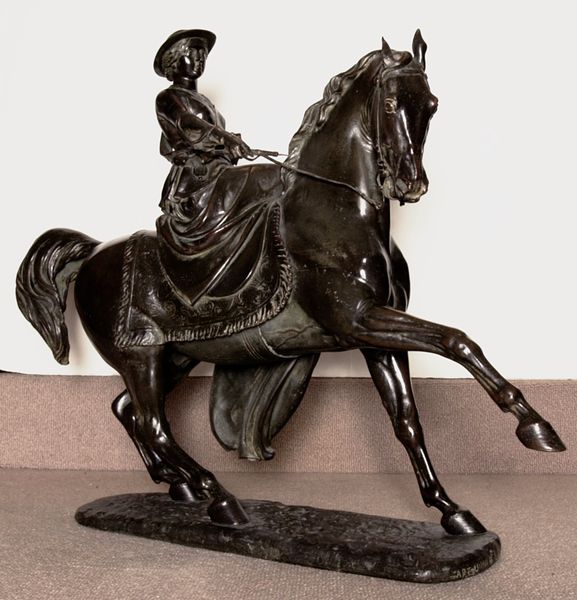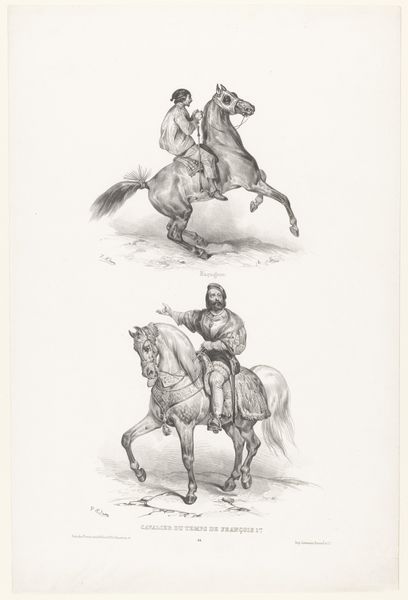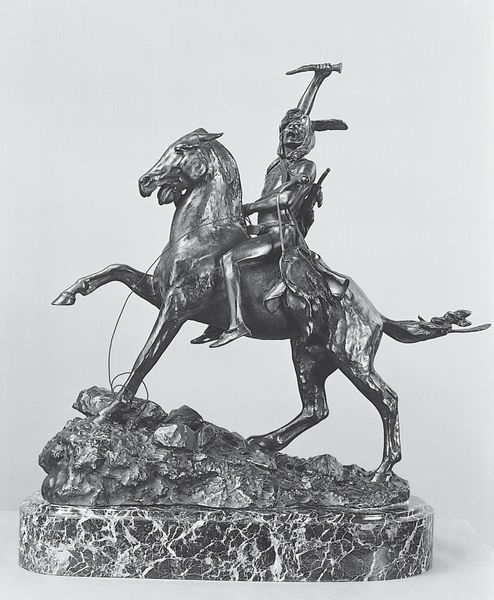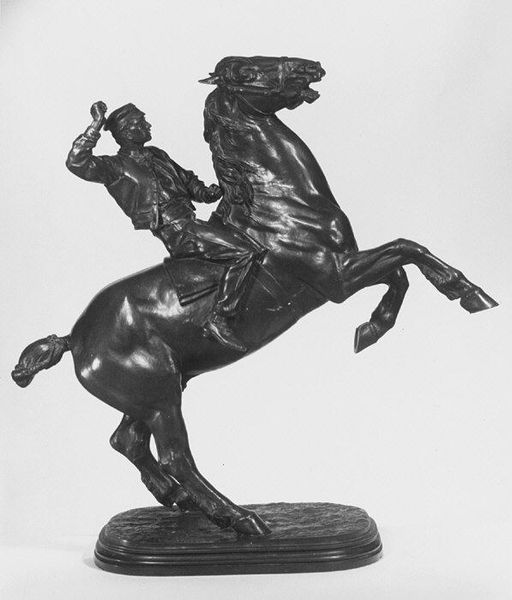
Armor for Man and Horse Presumably Made for Baron Pankraz von Freyberg (1508–1565) 1510 - 1900
0:00
0:00
metal, sculpture
#
portrait
#
germany
#
metal
#
sculpture
#
figuration
#
ancient-mediterranean
#
sculpture
#
black and white
#
horse
#
armor
#
monochrome
#
monochrome
Dimensions: Wt. of man's armor approx. 55 lb. 11 oz. (25.25 kg); Wt. of horse armor with saddle 65 lb. 7 oz. (29.69 kg)
Copyright: Public Domain
Wolfgang Grosschedel created this suit of armor around 1545, now housed in the Metropolitan Museum of Art. At first glance, one is struck by the armor’s smooth, reflective surfaces, meticulously crafted to both protect and impress. The ensemble, complete with articulated joints and decorative elements, speaks volumes about the era's craftsmanship and social hierarchy. The armor presents a complex interplay of form and function. Each plate is carefully shaped to provide maximum protection while allowing for movement, a demonstration of advanced metallurgical techniques. This sculptural quality elevates it beyond mere utility. The semiotic significance of such armor extends to the societal values of the time. It symbolizes power, status, and the martial prowess of the aristocracy, reflecting the cultural codes of chivalry and warfare. This piece challenges us to consider how objects of protection also serve as powerful symbols of identity and authority.
Comments
No comments
Be the first to comment and join the conversation on the ultimate creative platform.
